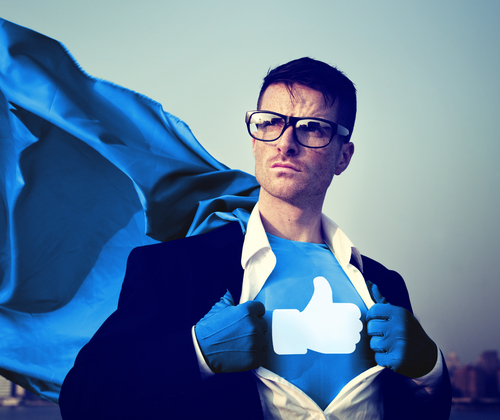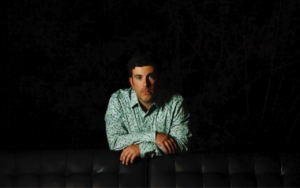 When MySpace was the dominant social media platform for independent musicians (remember George W. Bush’s second term?), people got obsessed with numbers. How many friends do you have? How many times have your songs been played?
When MySpace was the dominant social media platform for independent musicians (remember George W. Bush’s second term?), people got obsessed with numbers. How many friends do you have? How many times have your songs been played?
The higher the number, the more legit you seemed. Labels, bookers, even other bands were all staring at your stats and judging you accordingly.
And it was all B.S.
Why? Well, because some bands paid services to boost their numbers for them. Some bands held pizza parties and had all their friends clicking the play button all night long. Other talented bands didn’t have any MySpace friends or plays yet, because they were brand new acts. While other brilliant musicians were never going to see those kinds of giant stats simply because their music was more niche and wouldn’t have broad appeal. Take any of the examples above and you quickly realize — numbers alone have little to do with talent.
And yet… almost a decade later, musicians are still concerned with their numbers: Facebook fans, YouTube subscribers, Twitter followers, and more.
I get it. Our egos, giant and fragile as they are, are wrapped up in trying to manage impressions when we’re promoting our music. We want to seem bigger than we are because — to some degree — that’s still how you get taken seriously. Labels and promoters and managers and fans, they all want to see how many Facebook likes you have, how many times your YouTube videos have been watched, etc.
And it’s STILL B.S.
Quality over quantity: your online music promotion depends on it!
Don’t get me wrong; I think that smart, extremely targeted paid promotion on Facebook, Twitter, and YouTube can be effective if you do some low-cost testing upfront and you’re trying to get your music in front of a narrow segment of the “marketplace” (sorry for the robotic word). Again, it’s about REAL fans.
But a fake fan is worthless. If you’re trying to super-size your stats to look bigger than you are, remember this: There’s no one on the other end of that empty statistic who’s excited about your music, who’s going to share your music, who’s going to buy your music. You’re an INDIE musician, damnit! It’s about quality, not quantity. Better to have 500 true fans than 50,000 disengaged (or fraudulent) followers.
Even if you ARE trying to go for the big major label deal (where these kinds of impressions are doubly important to your success), I’d still argue that your paid online promotional efforts go towards finding a smaller amount of real fans than a huge amount of ghosts, bots, and clickfarmers in Indonesia. When an A&R person says, “well,… we’re hesitant to sign you because you only have 8,000 Facebook fans,” you can respond, “Yeah, we only have 8,000 Facebook fans, but 5,000 of them bought our CD. Now imagine how much we’ll sell when you help us extend our reach!”
But there’s another reason why you shouldn’t be worried about boosting numbers for the sake of appearances, and it’s this: fake social interactions will actually HURT you in the long run by making it more difficult to share your music and message with your actual fans.
An artist named Alexan O’Brien posted this comment on a recent blog post:
I’m not verifying the claims in this video (some artists swear by Facebook advertising, and others have experienced something similar to what’s described in the video) but it does raise some good questions — and, if true, supports Alexan’s advice that if you pay to promote yourself on Facebook, it might best to promote your posts and NOT your page (or at least be extremely picky about who you target for Page likes, and watch your campaign closely to see what effect it’s having on your page).
I would add to this discussion, while we’re talking about boosting numbers, that YouTube monitors plays (sources, frequency, etc.) to ensure your video stats are accurate and… actual. YouTube needs to protect their advertisers too, and companies don’t want to throw a bunch of money behind an ad campaign that “might” be seen be real humans. So after a certain point, YouTube discounts views that seem suspicious.
—-
So, still worried about your social media stats? Here’s a bit of advice I know is easily given (and less easily followed): create songs, videos, concerts, and fan experiences that are WORTH sharing. Do that and you won’t just see your numbers rise; you’ll be at the center of a growing community of real fans.
Have you had experience paying for likes or boosting your stats in a fraudster kind of way? What came of it? Did it hurt or help? Let me know in the comments below.
[hana-code-insert name=’Creating-Facebook-Events’ /]
[hana-code-insert name=’Twitter-10-Day-2′ /]
[Superhero photo from Shutterstock.]

Do NOT buy likes or promote your page via Facebook. This will be very damaging to the overall effectiveness of your page. The more you “promote” your page, the more click-farms will “like” your page and totally screw up who your posts will reach. Then, when you boost posts in the future, it will have less of a chance to get the post in front of real people. If you want to pay for Facebook, then boost posts — targeting people who like your page and their friends. That way when you boost posts, they will actually get in front of fans/potential fans. The “people reached” is utter bullshit. Means nothing. You are trying to get cool, relevant posts in front of people.
—
And then he supplied this YouTube video for skeptics: